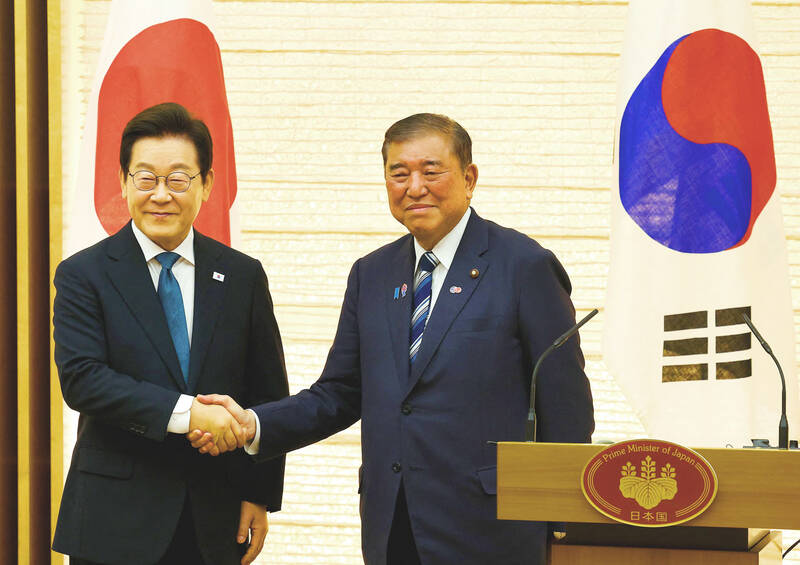South Korean President Lee Jae-myung, in his first full summit with Japanese Prime Minister Shigeru Ishiba in Tokyo, yesterday stressed the importance of setting aside differences and cooperating in common areas, as the leaders showcased their efforts to develop friendly ties.
The neighbors face common challenges from the US, their mutual ally, and Lee’s visit to Japan might help him prepare for his crucial first summit in Washington tomorrow with US President Donald Trump, mainly on trade and defense issues.
Japan and South Korea could cooperate in many areas, but also have conflicts, because they are so geographically close, Lee said.

Photo: AFP
At a time when global trade and security are shaken, it is more important than ever for the two countries with shared principles to cooperate, he added, calling for increased dialogue through “shuttle diplomacy.”
His Tokyo visit before Washington is well received by Japanese officials, who see it as a sign that Lee is placing great importance to relations between the two neighbors whose ties have repeatedly been disrupted by historical disputes.
Ishiba on X wrote that Lee’s trip to Tokyo was the first destination of his foreign trip since taking office in June.
He welcomed Lee’s arrival at the Japanese Prime Minister’s Office and posted photos on social media.
The two leaders first met in a closed, small group of officials before summit talks with expanded groups.
The Asia Group Japan branch associate Rintaro Nishimura said the timing of Lee’s visit showed “his way of pragmatic diplomacy,” with a focus on bilateral and trilateral relations with the US.
For the two leaders, yesterday’s talks were largely symbolic and aimed at highlighting their friendship and focusing on exchanges, as this year also marks the 60th anniversary of normalizing their diplomatic ties, he said.
Possible outcomes of the meeting include fast-track entry visas for South Korean travelers and working holiday programs.
The two leaders are also expected to discuss mutual concerns, including North Korea’s nuclear and missile development, and China’s growing assertiveness in the region.

AloJapan.com